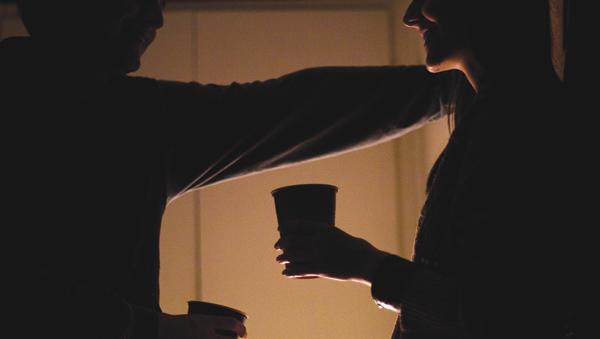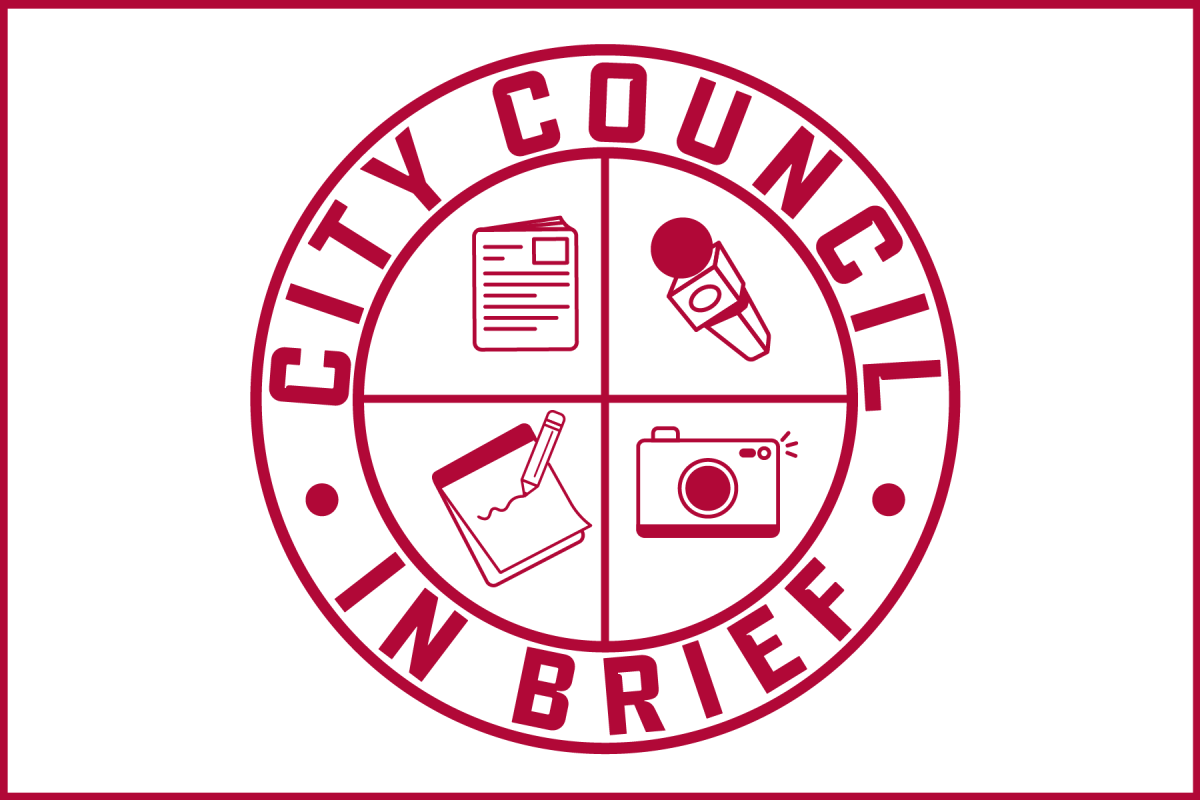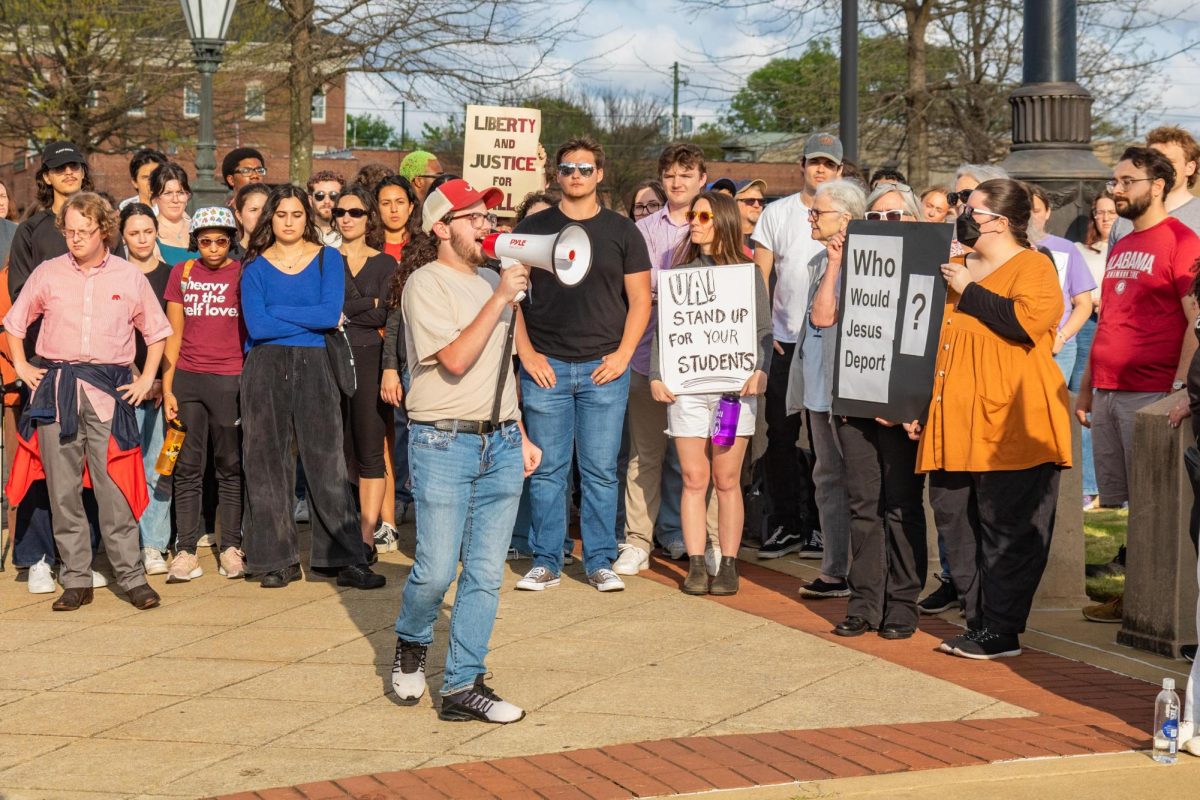Without consent, any sexual act is sexual assault. Yet knowing how to gain and give consent for sexual acts is the biggest sexual health problem facing UA students, according to University of Alabama officials.
Wanda Burton, peer education coordinator at the Women’s Resource Center, explained consent must be freely given for every act to avoid a possibility of sexual assault.
“You need to be talking about consent in a space where you feel completely comfortable, when there is no persuasion involved,” Burton said. “If you are getting someone drunk to have sex with them, that is sexual assault.”
In a Nov. 30, 2012 interview with The Crimson White, Jessica Vickery, assistant director of Health Education and Promotion at the Student Health Center, said she believes sexual consent is the number one sexual health issue among students at the University.
“Consent. Hands down. No one’s knows if they’ve given it, no one knows if they’ve asked it. It is the one thing I spend the most time [on] in programs with questions,” Vickery said. “Students are always like, ‘If I did this, did I get it?’ I think the issue of consent has become our biggest issue. Explaining the absence of no does not mean yes, and you have to get it every time for every act, and just because you’ve done it before doesn’t mean you can do it again.”
Burton said students should avoid talking about consent in an environment where one party is trying to persuade the other to concede, as this can also be a form of sexual assault.
“Just because you have consent to do something doesn’t mean you have consent to do everything, and just because you got consent in the past doesn’t mean you have consent now or in the future. Consent is for an act,” Burton said. “Consent has to be freely given, informed, and everyone has to be able to give consent.”
Vickery said that when it comes to sexual assault, false accusations are not possible, despite cultural beliefs otherwise.
“Some people think there are false accusations. There’s really no false accusations. If someone feels they didn’t give consent, then they didn’t give consent,” Vickery said. “Whether it’s coerced or manipulated, that’s still not consent. I think right now that’s really a big issue on our campus and students are really confused about it.”
According to UAPD’s most recent Annual Campus Safety report, there were 16 forcible sexual offenses reported on campus between 2008 and 2011. Fourteen of those occurred in residence halls.
Ashley Frazier, a senior majoring in music therapy and former resident advisor in Parham Hall, said RAs are trained to deal with incidences of sexual assault.
“I did deal with situations in training where a sexual assault had occurred and the girl came to talk to me,” Frazier said. “In that situation, you would try to get as much of their story as possible. Then you would contact supervisors, the authorities and counseling if needed.”
Although Frazier never had to use her training, she said the University’s status as a “party school” pervades a culture of sexual assault.
“Being a party school isn’t helping us at all,” Frazier said. “Being able to separate school life, dorm life and partying would be helpful.”
Additionally, Burton emphasized the importance of maintaining a campus culture that doesn’t ostracize victims of sexual assault.
“It’s important to change the culture so that, one, women are not victimized in the first place, and two, when sexual assault does happen, the victim doesn’t have to be re-traumatized when coming forward,” she said.
Although many students believe they’re only option following sexual assault is pressing criminal charges, Vickery said many students who find themselves confused or concerned about a sexual act can use other avenues to address the concern of sexual assault on campus.
“I think right now that is the biggest issue because you have a lot of people that walk away confused about whether or not what just happened was okay,” Vickery said. “I think that if they’re questioning whether or not that’s okay it means that it wasn’t okay, but they don’t know legally where to go. Most people don’t feel comfortable [pressing charges], but you don’t have to press charges; you can go through judicial affairs.”
(See also “Sexual health paramount not just during spring break”)
Frazier emphasized how important it is for women on campus to know how to avoid sexual assault and where to go if they feel victimized.
“As a woman on campus, it’s definitely good to have knowledge about what to do if this situation arises and how to avoid it,” Frazier said. “I feel like I have that information. You learn it as you go through college.”
Burton pointed to the need for comprehensive sex education during and after high school, saying this could help students understand the importance of gaining consent for every act.
“It would be great if we had comprehensive sex education at the high school and college level,” Burton said.
However, Frazier said she was skeptical of mandated education around this issue.
“They do Alcohol 101, but students don’t really take it seriously,” Frazier said. “If they did that for sexual assault, I feel like students would treat it like a joke. I think it’s better to have events on campus that students can go to if they’re interested.”
Although Vickery conceded Burton’s view that UA students need to be better educated about sexual consent, she said she doesn’t think UA students are more uneducated than students at other universities nationwide.
“I don’t honestly think UA students are any different than any students in the country. We might be a little bit conservative, but that doesn’t mean our issues are any different than anywhere else,” Vickery said. “People elsewhere might be more open to talk about it, but that doesn’t mean that they know what consent is. It’s not clear. We’ve done a lot of research about it and we haven’t found a comprehensive consent program nationally. They have a lot of the same issues of a lot of other schools.”
When it comes down to it, Vickery said she hopes her campus educational programs help teach students to listen to themselves when it comes to sexual acts.
“Students need to know to listen to themselves. I know that sounds crazy, but to know to listen to themselves and if they feel something isn’t right to speak up and say no or to ask,” Vickery said. “That needs to become part of the dialog that students are having going forward in whatever sexual acts they are choosing to partake in.”
Leading in today’s Crimson White:
LeaderShape to hold information session for interested applicants
Tax credit for student loans survives politics of ‘fiscal cliff’









